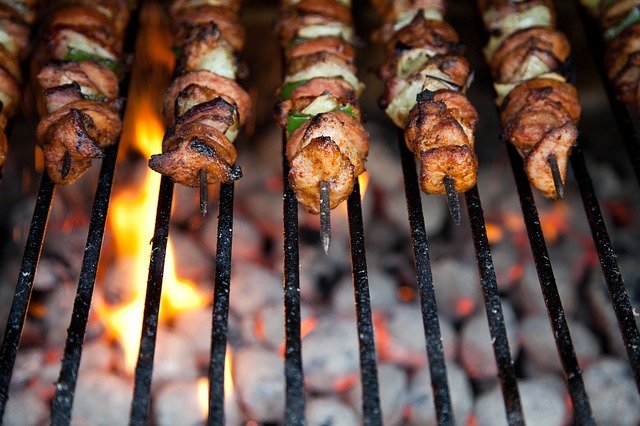
In a recent study, researchers find that grilled or well-done beef, chicken or fish may raise the risk of developing high blood pressure among people who regularly eat those foods.
In the study, the researchers analyzed cooking methods and the development of high blood pressure in people who regularly ate beef, poultry or fish:
32,925 women taking part in the Nurses’ Health Study; 53,852 women participating in the Nurses’ Health Study II; and 17,104 men in the Health Professionals Follow-Up Study.
The team also collected detailed cooking information of these people.
None of the participants had high blood pressure, diabetes, heart disease, or cancer when they enrolled, but 37,123 people developed high blood pressure during an average follow-up of 12-16 years.
The researchers found that in people who ate at least two servings of red meat, chicken or fish a week, the risk of high blood pressure was 17% higher in those who grilled, broiled, or roasted beef, chicken or and fish more than 15 times/month, compared with less than 4 times a month.
The risk was 15% higher in those who prefer their food well done, compared with those who prefer rarer meats.
In addition, the risk was 17% higher in those estimated to have consumed the highest levels of heterocyclic aromatic amines (HAAs) compared to those with the lowest intake.
HAAs are chemicals formed when meat protein is charred or exposed to high temperatures.
The results showed that the relationship between cooking temperature, method, doneness and high blood pressure was independent of the amount or type of food consumed.
The team suggests that it may help reduce the risk of high blood pressure if people don’t eat these foods cooked well done and avoid the use of open-flame and/or high-temperature cooking methods, including grilling/barbequing and broiling.
They also suggest that oxidative stress, inflammation and insulin resistance affect the inner linings of blood vessels, and are associated with the development of atherosclerosis.
Atherosclerosis is the disease process that underlies heart disease and causes the arteries to become narrowed.
It is important to note that this study identifies a trend but does not prove cause and effect.
The findings are limited because data came from questionnaires that did not include certain types of meats (such as pork and lamb) and certain cooking methods (such as stewing and stir-frying).
Because the participants were all health professionals and mostly Caucasian, the results may not generalize to other groups.
Gang Liu, Ph.D. is the lead author of the study and a postdoctoral research fellow in the department of nutrition at the Harvard T.H. Chan School of Public Health in Boston.
The study was funded by the National Heart, Lung and Blood Institute.
The study was presented at the American Heart Association’s Epidemiology and Prevention | Lifestyle and Cardiometabolic Health Scientific Sessions 2018.
Copyright © 2018 Knowridge Science Report. All rights reserved.
Follow Knowridge Science Report on Facebook and Twitter.
Figure legend: This Knowridge.com image is for illustrative purposes only.



